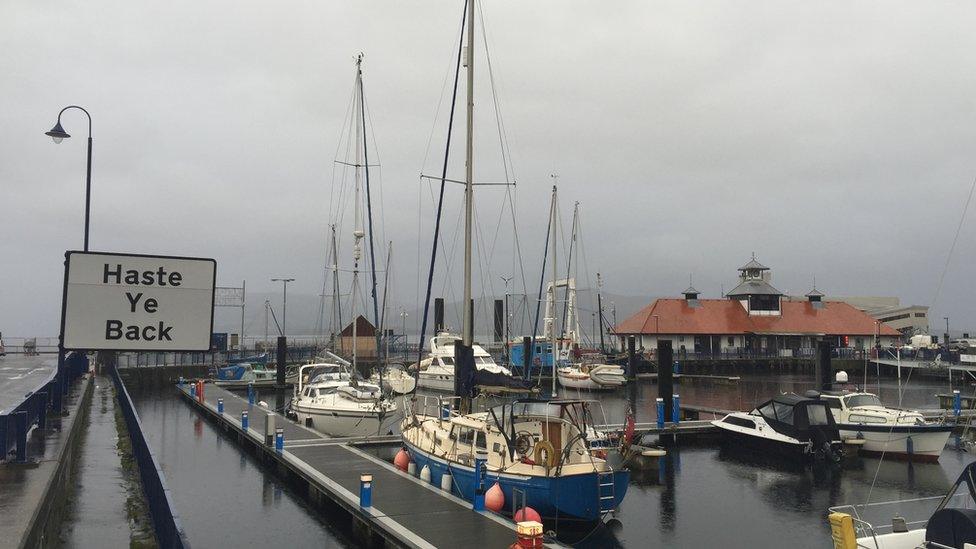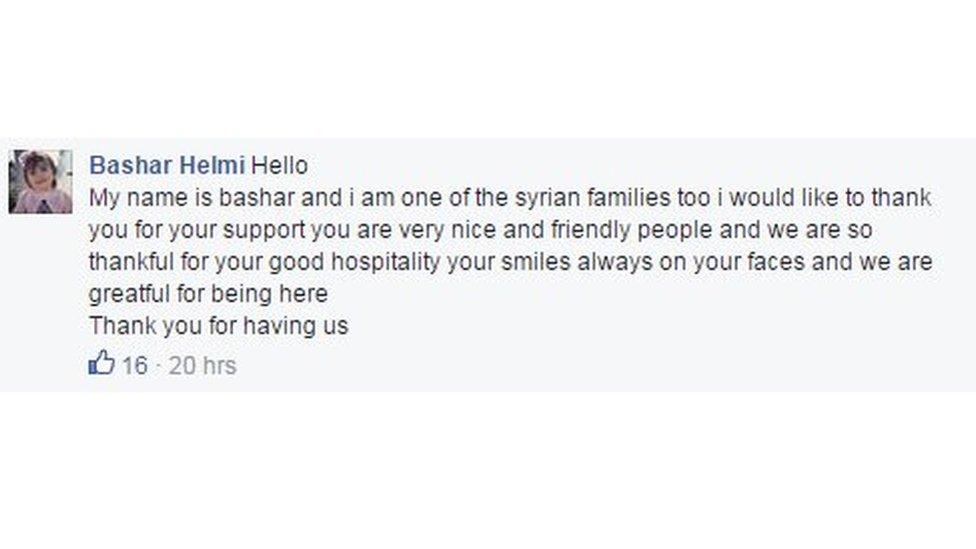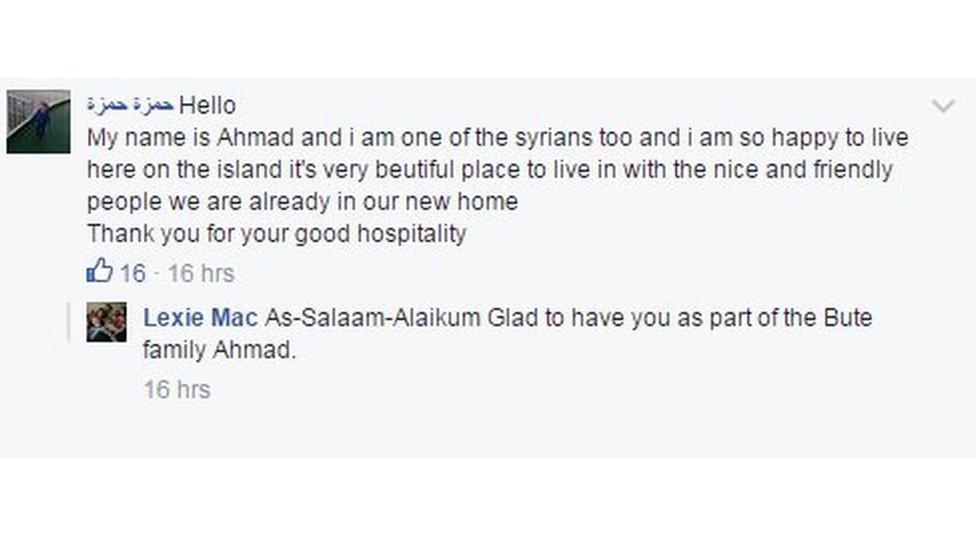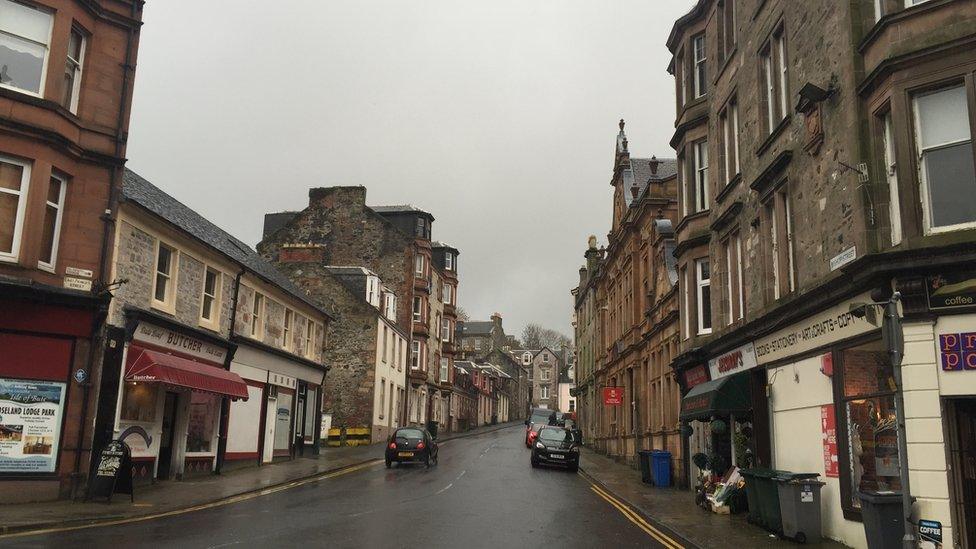Syrian refugees share their love of Bute
- Published

Rothesay harbour
Syrians sent to live on a Scottish island have praised the Isle of Bute after reports some refugees had said it was full of old people waiting to die.
It follows a recent newspaper article, external quoting a refugee family in the town of Rothesay on the Isle of Bute, saying they wanted to leave because they felt isolated and ashamed of taking charity.
'This family has lost a great deal'
In a Facebook post, external that's been shared almost 12,000 times, Lisa O'Donnell - who was born on the island - shows sympathy for the Syrian refugee family living on the island who appear in the article.
"He once owned a shop, was a man of property, this family has lost a great deal" she posted on 25 July,
"This family miss their home and the life they once lived before the war."
There are around 15 Syrian families now settled in Bute and some of them have been responding to Ms O'Donnell's Facebook post to express that they like living on the island.
Bashar Helmi posts that he is grateful for living on Bute.

Mounzer Darsani - who works at Facebook - posts that he is happy to be on Bute where everyone has been friendly and supportive.
Ahmad - who doesn't give a last name - also responded to Lisa's Facebook post.

'The Syrians belong to the family of Bute'
"If his family have been humbled by charity and he feels embarrassed then this is a human response. I would feel the same if my independence was taken from me and I could not provide for my family and had to rely on other people."

Lisa, a writer who now lives in Glasgow, told BBC news: "I was born on the Isle of Bute and I am from six generations of family from there. It is full of good people.
"Some of the Syrian refugees have post traumatic stress. They have a sense of depression.
"Scotland is a country that understands more than any country the importance of home.
"The Syrians belong to the family of Bute as long as they want to belong and you will find that most people have welcomed them with open arms and great admiration."
The BBC understands that the interview in the paper was conducted in Arabic and a professional translator was used.